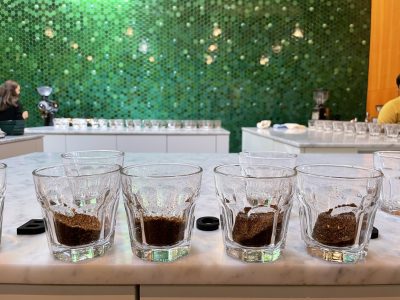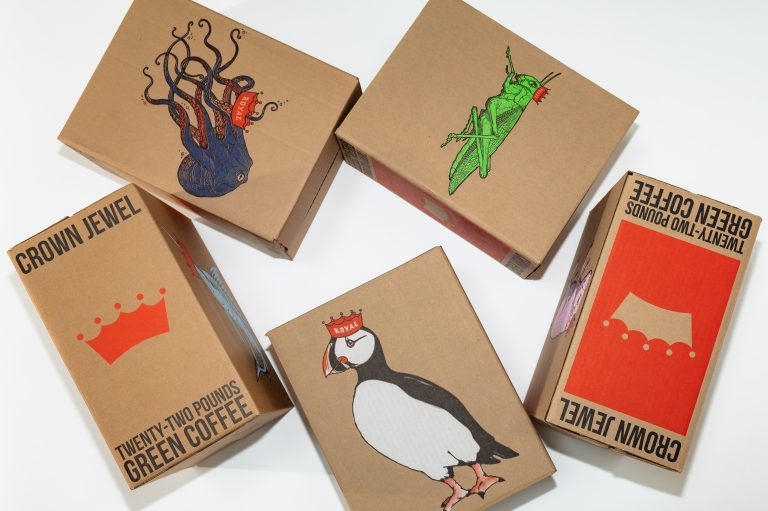I visited Taiwan last winter to promote a book about coffee roasting that I co-authored with Naoki Goto, Tim Wendelboe, and the book’s editor, Lulu Wang. I was excited to experience and learn more about the coffee scene, as well the food scene in Taipei and elsewhere on the island. I heard the Taiwanese coffee market was sophisticated, and I found the coffee scene to be very exploratory and innovative, from the coffee plant to the brewed drink.
Coffee originally came to the island 50-60 years ago during Japanese rule. But in the last half century Taiwanese coffee culture has grown and advanced at a quick pace, with Taiwanese competitors like Berg Wu winning the 2016 World Barista competition and Chad Wang winning the 2017 World Brewer’s Cup competition.
Coffee brings another dimension to a cultural heritage of beverage and food appreciation. A trip to a cafe can be a heightened experience. Taipei’s One Seat, for example, provides an immersive, artistic experience, as a single customer fits in a narrow, dimly-lit, wood-paneled cafe with jazz LPs on the wall. The customer sips their coffee face-to-face with the barista/cafe owner, before making way for the next customer.

The Taiwanese value coffee highly. They take the art and science of roasting and brewing seriously and are willing to pay high prices for a quality experience. I visited cafes where a 12 ounce pour over was about double the cost of a similar quality coffee at a comparable cafe in the San Francisco Bay Area. I also enjoyed espresso drinks made by award-winning baristas and roasters, and I visited award-winning tea farmers who have started growing coffee and are using advanced processing techniques on their high-quality varieties, including Gesha.
Specialty coffee farming culture in Taiwan is influenced by some of the same award-winning roasters and buyers that share coffee information and processing techniques from their travels with coffee farmers on the island. Having toured coffee farms in established producing regions like Central America and East Africa, I expected that coffee agriculture and processing methods in Taiwan would be less advanced than, a Cup of Excellence winning farm in Honduras, for example. I was wrong. Producers like Taiwan’s “Coffee Prince”, are using state-of-the-art techniques, such as Saša Šestićs use of anaerobic fermentation, on small lots of coffee.

The coffee scene draws on the rich and extensive food culture on the island. Taiwanese are obsessed with food in ways I’ve never seen in any of my travels around the USA or elsewhere in the world. Metro trains were adorned with cartoon images of cooked shrimp and a highway rest area was actually a vast food mall containing such treats as whole grilled squid on a stick. Airport food wasn’t just poorly executed fast food, but tasty dim sum where you could order soup dumplings. No place was ever too small to have delicious, regionally unique food.
Taiwan has a complete understanding and appreciation for specialty coffee. They grow specialty coffee, manufacture roasting machines, compete in and win competitions, and value coffee at a high level. The specialty coffee community is small and tight-knit, and rests on a cultural foundation of having a strong work ethic and perfecting one’s craft. Food culture is pervasive but not hipster, and is deeply embedded in the fabric of their society. The coffee scene is another extension of the ritual and tradition-led food and tea culture and I feel lucky to have experienced its deliciousness.



This was a fresh view with the “outside looking in” type feel. It is nice to know how other coffee consuming countries stack-up to the US and how they value this great commodity. Thanks!